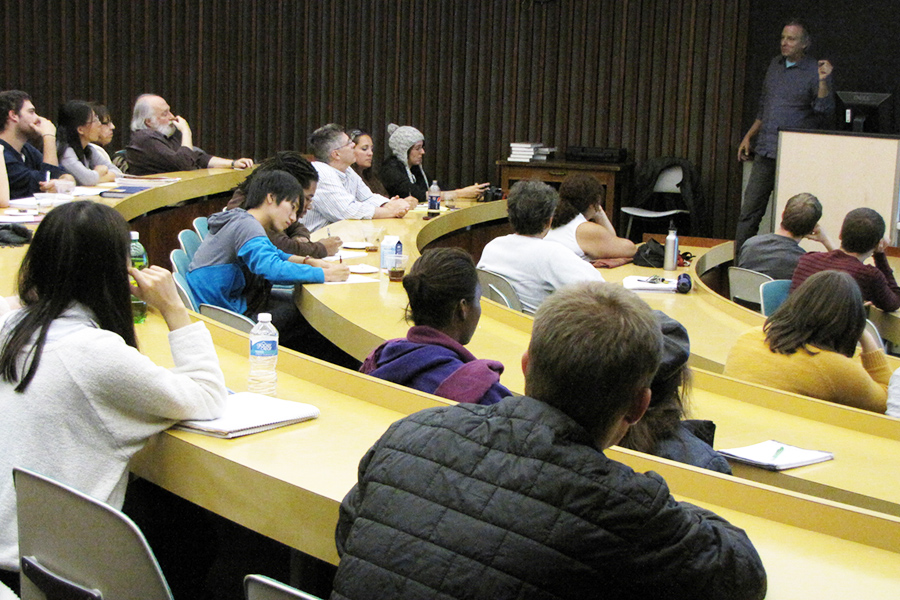


Office of Communications
2 East South Street
Galesburg, IL 61401


by Rana Tahir '13
Scholar and author David Roediger breaks with most labor historians, he says, because he believes that labor management started in the times of slavery and carried on as an issue of race.
Roediger was at Knox College on Wednesday, October 10, talking to students about his new book and research. A political activist, he also is Babcock Professor of History at the University of Illinois at Urbana-Champaign.
The lecture, "The Production of Difference," was a continuation of the discussions of inclusivity from commUNITY Week, sponsored by the Office of Student Development as part of a campus-wide inclusivity initiative in partnership with the History Department and the Black Studies Department at Knox College.
"If you can't connect what you read to the real world and if somehow that does not come out in changing the real world, you may be smart, whatever that means. But I'm not sure that much has happened," Fred Hord, Knox professor and chair of Black Studies said as he introduced Roediger.
Roediger's lecture was broken into three parts: Slavery up until the Antebellum South; Western infrastructures, such as the building of the northern railroad; and the management of factories, which is when most labor historians believe labor management started.
However, Roediger argued that the history of labor management actually started during the times of slavery.
By looking through 200 volumes of slave-handling literature he found that every manual regarded production and management as an issue of race relations, he said. One manual stated that "profit lies in the increase (of slave productivity,) not in the cotton," he said.
In the second part of the lecture, Roediger said this race-based categorization of management continued even after slavery was abolished. The newer form of management created disunity among different races.
By creating this animosity, Roediger said, a manager was better able to control the labor forces.
During the third part of the lecture, on factory management, Roediger said that companies called for scientists to research which races were better-suited to certain jobs. He expected to find some pseudo-scientific studies on race labor, but found that hardly any existed.
"The very last thing that this system wanted was to produce a scientific hierarchy for who was good for what job," he said. "It's the competition; it's the jockeying that (made) this system work."
Roediger's new book is The Production of Difference: Race and the Management of Labor in U.S. History, co-authored with Elizabeth D. Esch.
"We very much mean for this to be a book that's taught in management classes," he said.
Published on October 18, 2012